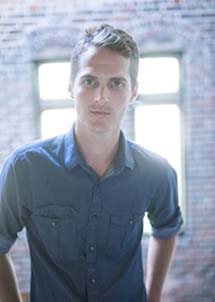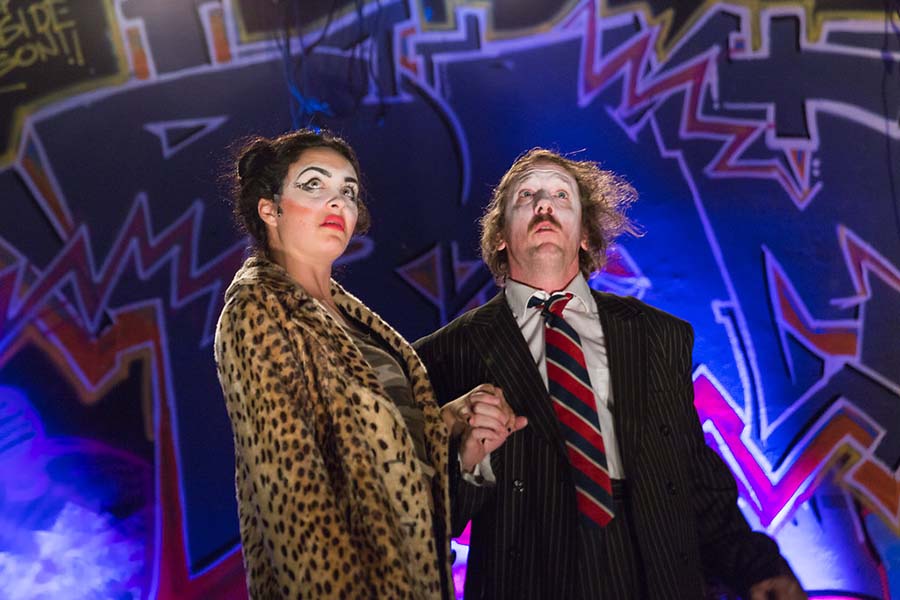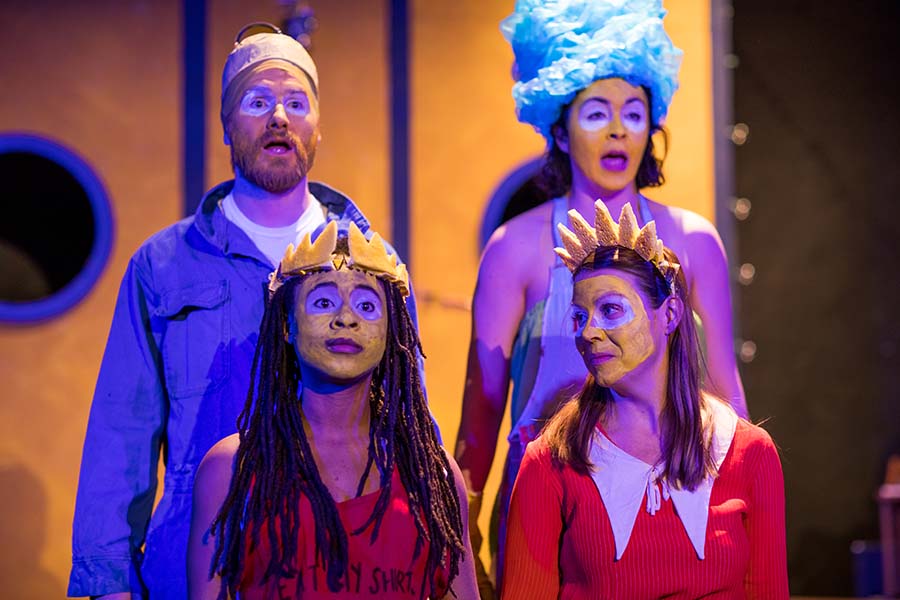PROVIDENCE, R.I.: The Wilbury Theatre Group sits at the intersection of three neighborhoods in Rhode Island’s capital city. The company presents edgy new work at its home in the historic Trinity Square Theater at the Southside Cultural Center. We spoke to founding artistic director Josh Short via email to learn about producing theatre in the state known for its sandy beaches and college towns—and in the town known for the legacy theatre Trinity Rep.
Who founded the Wilbury Theatre Group, when, and why?
The Wilbury Theatre Group was founded by a loose coalition of artists in 2010 as a home for professional-quality productions of adventurous theatre in Providence. For just over two years, we produced shows under the name of “The Wilbury Group” and after a time we organically grew into what has become a more traditional small regional theatre, with myself as the founding artistic director.

Tell us about yourself and your connection to the Wilbury Group.
I started as an actor “who always wanted to direct,” and then through an internship with the Providence Black Repertory Company (now gone), I discovered a passion for producing. Along with some of the artists still working with us today, I’ve been with the Wilbury Group from the beginning, from one rented garage space to an empty mill building and back again, and my connection to the group is about as strong as a connection gets.
What sets your theatre apart from others in your region?
We decided a couple of years ago that we’d always rather be a pirate ship than a tanker. We’re small and flexible and willing, and while we have the resources to produce work on par with other professional theatres in the region, we’re small enough that we’re able to take considerable risks in our programming. Over the years, this approach has empowered us to build a main series season of six plays, a new-work development program, and produce the Providence Fringe Festival, FRINGEPVD.
Who is your audience?
Our audience is smart and excited to be part of the next wave of theatremaking in Providence. They love theatre that takes risks and challenges them to reconsider ideas they may have about what theatre is supposed to be, and they’re equally at home watching plays by Sarah Kane and Harold Pinter or watching brand-new devised works by Providence artists. They value the theatre as an art form that demands participation, and they are anything but passive when it comes to their role as audience members and supporters.

I feel a kind of kinship with other artistic directors around the country challenging themselves and their audiences with new work by tomorrow’s artists, but I don’t think any institution has done more for the American theatre than the Public Theater. Joe Papp founded the Public with the idea that theatre could be exciting and compelling for American audiences in a way that celebrated the artist and the theatregoer as partners in a communion, and over the years the result of that commitment speaks for itself.
How do you pick the plays you put on your stage?
We spend a lot of time listening to what’s going around us and allow that to inform the work that we do. We try to give an opportunity for all voices to be heard, and we pick the work that we feel best challenges our artists and our audiences.
What’s your annual budget, and how many artists do you employ each season? Our annual budget is about $180,000 per year. We have a full-time staff of one, a few more part-time artists and support staff, and resident artists who work on a per show basis. This year we’ll employ about 35 actors in our mainstage season.
We also have more performance opportunities for artists through the Providence Fringe Festival (50-plus shows, over 100 performances), and our new-work development program that develops and produces plays mostly by local artists.
What show are you working on now? Anything else in your season that you’re especially looking forward to?
Right now we’re wrapping up our first ever Festival of New Works and getting deep into rehearsals for the closing production of our 2016-17 main series season, Spring Awakening. Once that’s open we’ll be all about the Fringe Festival through July.
I’m very much looking forward to next season already, though, which not only features plays by some of our favorite playwrights, like Young Jean Lee and Annie Baker, but will put myself and my brother Joe onstage together with the great Richard Donnelly for a production of Harold Pinter’s The Caretaker.

What’s the strangest or funniest thing you’ve ever seen (or put) on your stage?
One of our resident artists, Brien Lang, has a musical version of the Patrick Swayze movie Roadhouse (aptly titled: Roadhouse: The Musical) that we encouraged him to workshop and then had a limited run of. It’s hilarious. Our audience absolutely loves it, and I’m so happy for Brien that it became such a hit for us. But usually it’s somewhere between the songs “You Look Too Smart (To Have an Ass Like That)” and “I Used to F*%# Guys Like You in Prison” that I deeply regret ever thinking it was a good idea…
What are you doing when you’re not doing theatre?
Spending time with my kids (future theatre artists—fingers crossed) or seeing theatre!
What does theatre—not just your theatre, but the American or world theatre—look like in, say, 20 years?
Live theatre has never been more important than it is today. As a place for discussion in our communities, as a room where all people can come together for a shared experience happening just once and never again, the theatre will continue to grow into the modern place of refuge for people looking for community and artistic insight.
The theatres that are willing to continue to engage and celebrate artists and their communities will flourish as never before as our collective need for places of human connection continues to grow, and over the next 20 years we’ll see this resurgence of thoughtful, activist theatre as a home for discussion and discourse continue to grow even greater.


